WWF UK
Creating a behaviour-changing app concept with WWF
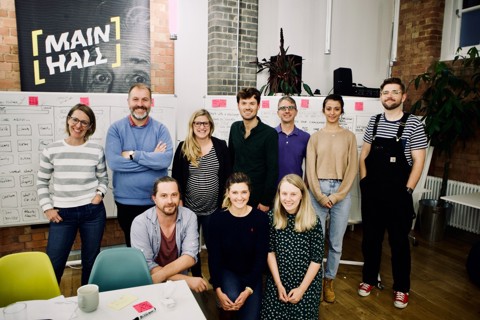
WWF is the world’s leading independent conservation organisation. Their mission is to create a world where people and wildlife can thrive together. To achieve their mission, they are finding ways to help transform the future for the world’s wildlife, rivers, forests and seas; pushing for a reduction in carbon emissions that will avoid catastrophic climate change; and pressing for measures to help people live sustainably, within the means of our one planet.
In July 2019, we ran a Design Sprint with them to help introduce a design thinking problem-solving approach. The goal was to start developing a product mindset and help build up the behaviour of being more supporter-centric.
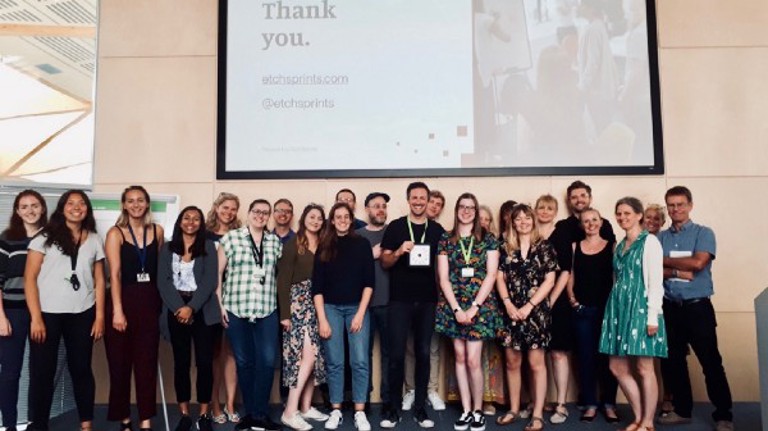
The opportunity
WWF engaged with us to create a digital activation for their Spring moment of which Earth hour is a key focus. It would be a joint team effort and include their UX’ers and design talent.
A key part of this was raising awareness around the world to the very real and imminent threat that we face today, that we are destroying our planet and need to act now.
Earth Hour is one of the biggest and fastest growing global movements and presents a huge opportunity for WWF to join in taking a stand whilst amplifying their message across the world.
Key objectives
- To reach out to more people than ever before
- Develop genuine and personalised connections with everyone that takes part
- Drive deeper engagement and inspire action
- Better leverage the power of digital and smartphones in connecting with audiences
Approach
On Monday, we went through activities to find the key challenges of the project that we should tackle first in this opening sprint, with the goal of getting the ball rolling and building momentum and a foundation for the project to continue on with. We also, individually, create several potential solutions to our challenge.
Long term goal
This week we delivered a long term goal, how everything might optimistically look in 2 years time:
“In two year’s time, it’s a cultural norm to reduce your impact on nature, and this is mainstream around the UK.”
Questions we needed to answer
- Can we find a way to give people the external recognition they need?
- Can we understand how cultural shifts have happened before and be realistic about our role in that?
- Can we find out what motivates people to change their habits?
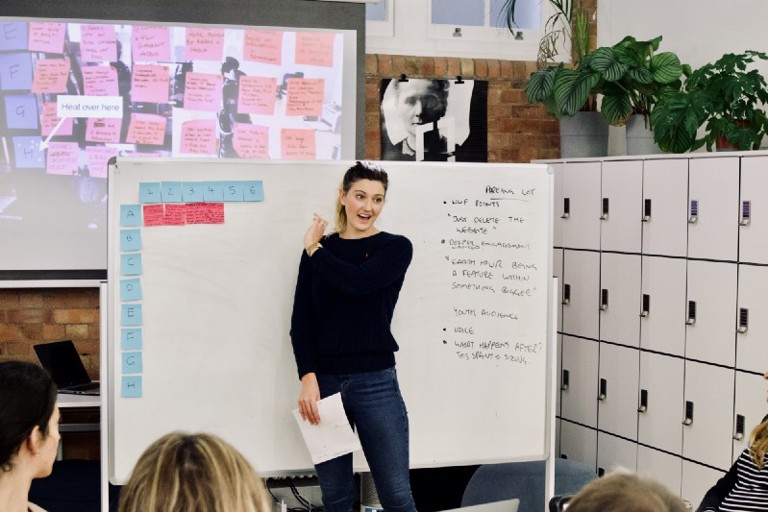
Workshop
On Tuesday, we spent time reviewing and voting on the great concept solutions we all created, and made decisions on which ideas and concepts we want to experiment with to solve our challenge. Once we made our decision, we created a detailed storyboard for the prototype.
On Wednesday, the prototyping team created a high fidelity prototype in only one day and planned out the interviews for the next day.
Reaction
The overall concept was very well received by all interviewees. We presented the product idea unbranded, as we wanted to test whether the idea itself was valuable, then revealing that the WWF were behind the idea right at the very end of the test.
People understood the concept and primarily took this app to be a challenge-based app. They saw it as a way to choose challenges to participate in and track their progress.
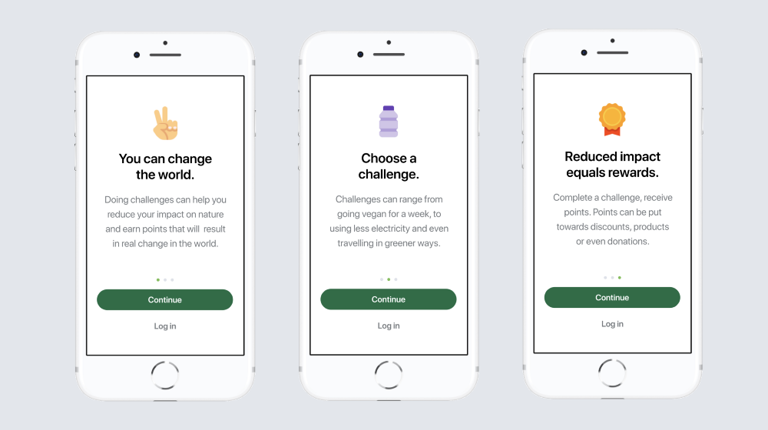
What worked
Users understood what the app did and all were very captivated by it. They evaluated the challenges and understood how to complete them — understanding that there were easy challenges and harder ones available.
Once we told users at the end of the test that WWF were behind the product idea, they all said how much they trusted the brand and how it added something to the product “I think it instantly has more credibility and would want to support the cause more” and brings a “huge amount of trust and credibility.”
What we learnt
Most users weren’t that bothered about earning points, but when asked what those points could go towards, they suggested either gifts to be sent to them (metal straws, coffee mugs, netted grocery bags), discounts off ethically aware services (e.g. Bulb) or convert to donations.
The onboarding screens needed some improvement, as we originally asked users a lot upfront about who they are, their email address and where they live. Users suggested that they should be able to try the app first, before adding their personal information in, or at the very least — be informed to what the app was all about. Many users had issues with providing email addresses and being part of a database.
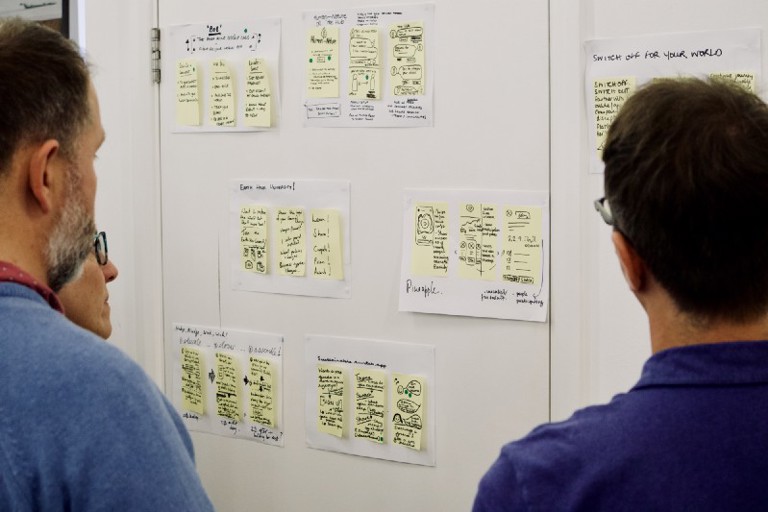
It was a very professionally run sprint, that gave us real results and importantly, an output I could take to board.
— Darragh Field, Director of Digital and Content at WWF-UK
Thanks for the work you and your team have done so far on the app.
— Richard Bowcott, Digital Programme Director at WWF-UK
Outputs and Outcomes
- sprint summary and report
- high-quality prototype
- real feedback from users
- product backlog and project canvas
- team alignment
- decisions made
- reduced risk
The Design Sprint enabled WWF to ideate, design and validate a concept for a brand new App to help people reduce their impact on nature. We’re now talking to them about the next phase.
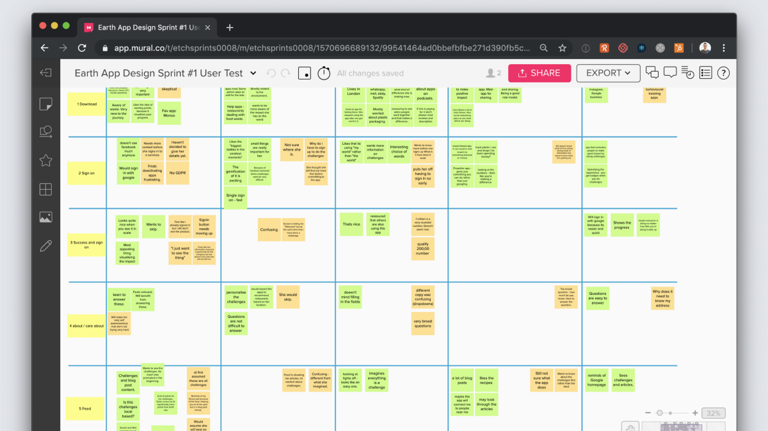
Value creation through design thinking
Etch helps leading organisations solve critical business problems before they invest the time and effort into building and launching, de-risking the bold moves necessary for businesses to grow.
